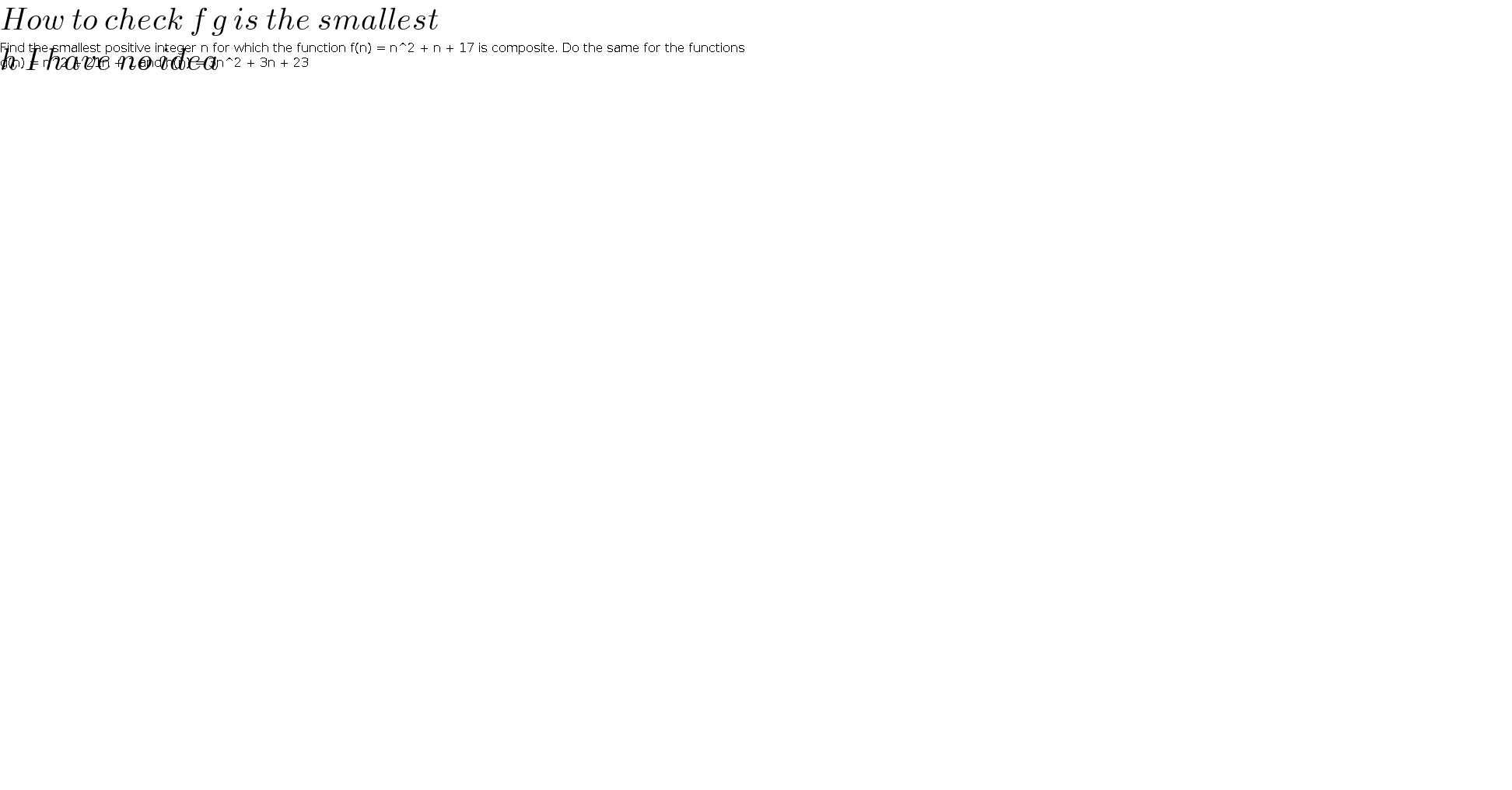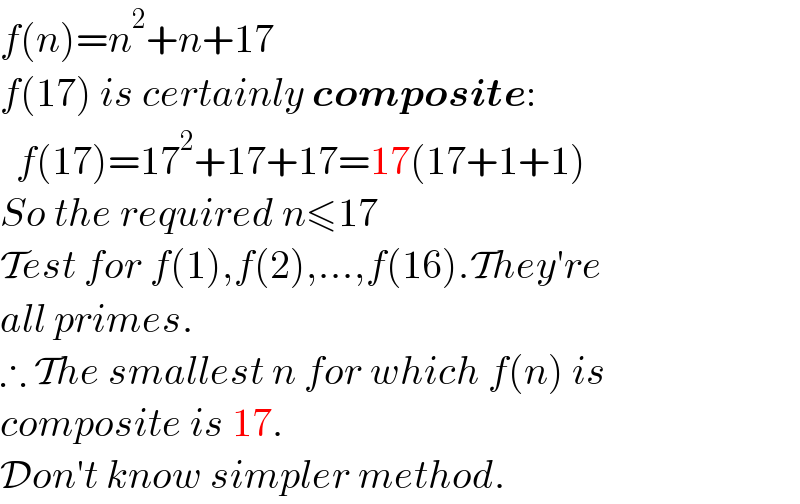Question Number 168458 by aaaspots last updated on 11/Apr/22
Find the smallest positive integer n for which the function f(n) = n^2 + n + 17 is composite. Do the same for the functions g(n) = n^2 + 21n + 1 and h(n) = 3n^2 + 3n + 23
Commented by Rasheed.Sindhi last updated on 11/Apr/22



